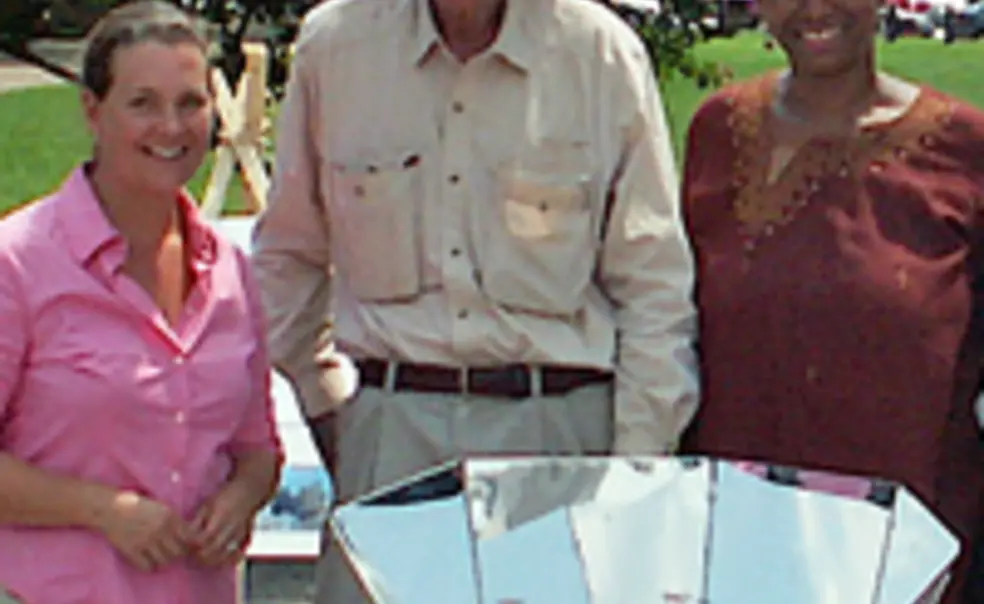Alumni Profile: Darwin Curtis '48, an advocate for solar cooking
When Darwin Curtis ’48’s son traveled to South America in the 1980s to buy wood for his business — making musical instruments — he would get upset that local residents had to cut down forests just to have fuel for cooking.
“He heard about solar-powered cooking, and had me look into it,” says Curtis, who recently had retired from his foreign-service career. “It wasn’t the time yet, because the technology wasn’t quite there. But I became convinced this was the way to go — to both save the environment and raise the standards of people living in those difficult conditions.”
Curtis says that about half of the world’s people still cook over open fires. Not only do those fires increase the prevalence of respiratory diseases, but the harvesting of so much wood to use as fuel has depleted forests and brush — exacerbating flooding that can wash away topsoil necessary for growing crops.
He tinkered with ideas for a few years, then decided to work on the project full time, co-founding the nonprofit corporation Solar Household Energy Inc. in 1998. Working from Curtis’ designs, engineers at the Florida Solar Energy Center, which is affiliated with the University of Central Florida, spent the next several years developing a cooker (with aspects of an oven and stove) that could be made and distributed for $27. By 2004, Curtis found a Mexican company to manufacture them. “They were inexpensive, the right size, and, most importantly, they really work,” he says.
In the last five years, says Curtis, Solar Household Energy has raised funds to distribute more than 12,000 of the cookers, with square-meter-sized reflectors that collect solar energy, to about 20 organizations in 10 countries, from Mexico to Senegal. His nonprofit works with local government agencies, nongovernmental organizations, and some private firms to distribute the devices and arrange training sessions.
“When I got to Senegal and saw the difference between the toxic air with the open fires and what we had with solar, I knew we were on the right track,” Curtis says.
Robert Strauss is a writer in Haddonfield, N.J.












No responses yet